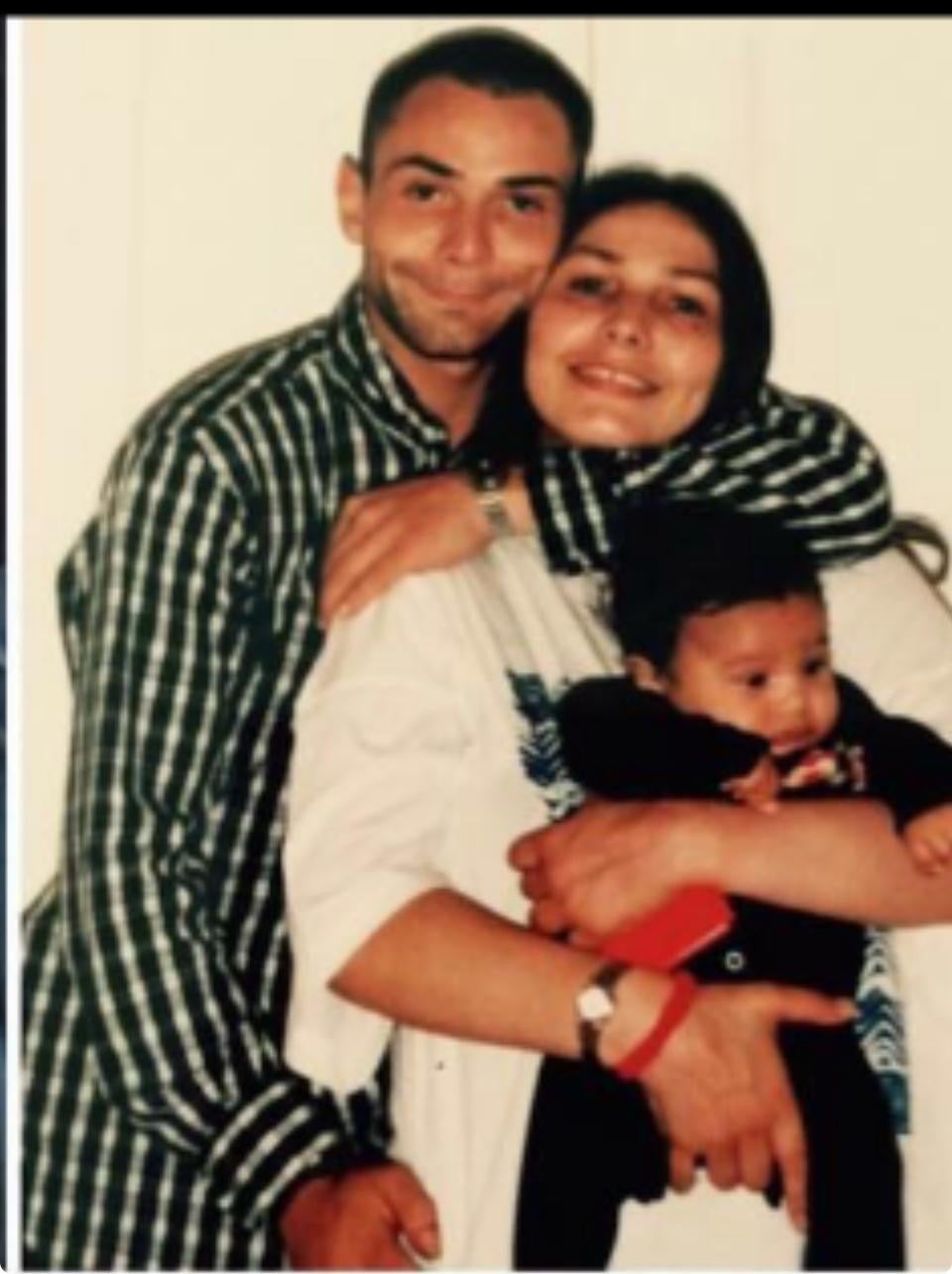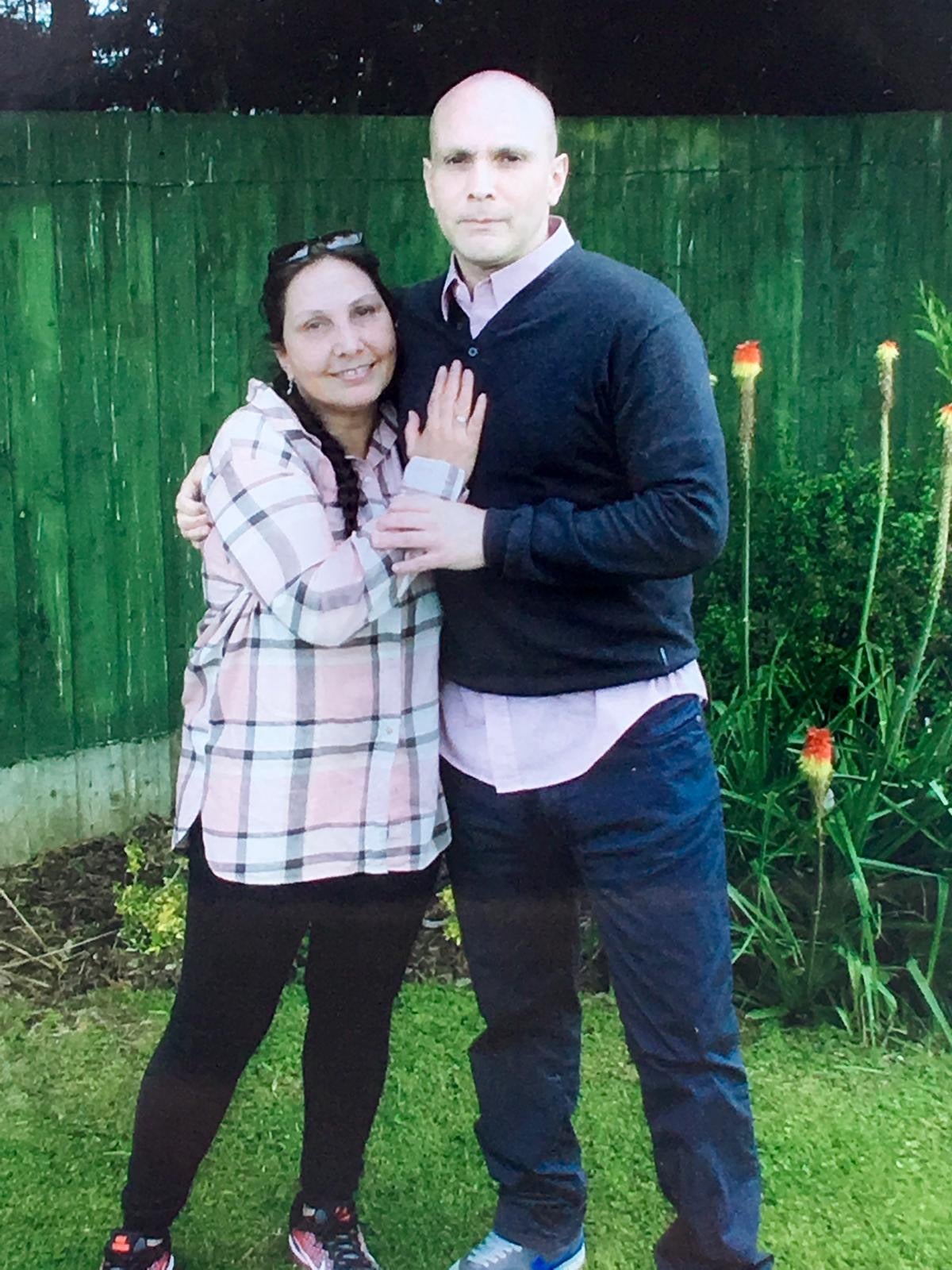‘He looked like a starving dog on the floor’: Prisoner trapped on indefinite jail term driven to hunger strike
Exclusive: IPP prisoner Yusuf Ali was handed a three-year tariff but has lost hope of freedom after serving almost 16 years, Amy-Clare Martin writes


When Jacqueline Ali arrived at HMP Long Lartin to visit her eldest son, seeing the man on the other side of the bars took her breath away.
Her once witty, happy-go-lucky son with dreams of leaving prison and starting a floristry business was curled up on the floor of a cramped hospital-wing cell.
After almost 60 days on hunger strike, Yusuf Ali was emaciated and looked like “a starving dog on the floor” – a shadow of his former self. The 50-year-old, who is serving an abolished indeterminate jail term described as “torture” by a UN expert, is said to have twice starved himself in desperation as he loses hope of ever being freed.
When he was handed the IPP (imprisonment for public protection) sentence in 2008 for seriously injuring another prisoner, he was told he must serve a minimum of three years. But almost 16 years later, after five failed parole bids, he is still inside.
After hearing about Ali’s case, former chair of the justice committee Sir Bob Neill called for the winner of the general election on 4 July to take urgent action to help IPP prisoners.
“This desperately sad case unhappily demonstrates all the harms that the justice committee reports warned that IPP sentences cause,” he said. “Any new government should act swiftly to erase this stain on our justice system.”
Ali’s heartbroken mother said he looked like a “skeleton” when she was allowed to visit him on compassionate grounds at the high-security Worcestershire prison in January.

A letter from the prison governor, seen by this publication, confirms that she was granted the special visits because he was “critically unwell” last year.
“When I first went to see him, he looked like a starving greyhound on the floor,” she told The Independent. “He was just bones on the floor, and his face was covered, so you couldn’t see him.
“It was shocking and heartbreaking. It took my breath away. I just said to Yusuf, if you can hear me, I love you and I totally understand why you’ve done this.”
With his mother’s support, he eventually consented to medical treatment and was taken to hospital where he was fed through a tube into his stomach. She said he spent a total of 61 days fasting.
However, on 23 May, he vowed to restart his hunger strike and told his mother that, this time, he would see it through to the end.
“He said ‘I just can’t take it anymore, I can’t do this anymore,’” she said, recalling her last phone call with Yusuf. “He said ‘I am going to go on hunger strike and I am not going to come off it this time.’”
After days of frantically trying to contact the prison, Ms Ali, who struggles with fibromyalgia and complex PTSD and can rarely make the almost 300-mile round trip from Bournemouth to visit her son in Worcestershire, was informed that he had been persuaded to end his hunger strike.

When The Independent contacted the prison service for comment, they denied he was on hunger strike for a second time. It is not known how long he refused to eat for on this occasion.
His mother is calling for urgent action to help Ali and almost 3,000 other IPP prisoners trapped under a sentence she says has “destroyed” her son.
The controversial sentences – under which offenders were given a minimum jail term but no maximum – were scrapped in 2012 amid human rights concerns. But the abolition of the policy did not affect those already sentenced, leaving thousands languishing in jail for years beyond their original prison term.
Following a deeply traumatic childhood – the full details of which we have chosen not to disclose in order to respect the family’s privacy – Ali fell into crime and was first incarcerated aged just 15 for a series of teenage betting-shop robberies using a stick in a bag as an imitation firearm.
He later absconded for around two years, during which time he became a father, but eventually handed himself in to the authorities in 1999, aged 26, and he was convicted of further crimes, including driving offences, robbery and burglary. He received an automatic “two-strike” life sentence, with a minimum term of five years and seven months. He has been incarcerated ever since.
He was being held at HMP Parkhurst, on the Isle of Wight, when he was handed an IPP sentence with a three-year tariff in 2008 for seriously injuring another prisoner during a fight.
The mother, who believes her son’s offending is linked to PTSD from the traumatic events of his childhood, said that when he was first handed the IPP sentence, he was determined to do his time and get home to his son.

But hope soon began to fade as he faced multiple parole hearings with no legal representation as his mental health deteriorated.
Mrs Ali told The Independent: “It’s devastated us. It has been a slow death.
“I watched him go from a vibrant boy down to a shadow of himself, and there’s nothing I can do. The powerlessness has made me ill. My family are heartbroken.
“It has just been horrible. The whole dream was for him to be home in time for him to be a father to his son, but he’s never been able to see that boy and now he’s 20.”
At a hearing in September 2022, the Parole Board noted that Ali had developed a stutter and nervous tic in prison, which has been linked to his mental health decline, but did not recommend his release or a move to open conditions. Among the risk factors they listed as they refused his release was “a loss of hope and a sense of having nothing to lose”.
His next parole hearing is due this autumn, but once again, Ali has no legal representation.
As he was recovering from his hunger strike last year and was gradually reintroduced to a liquid diet, Ms Ali tried to remind him of his hopes for the future – to have his poetry published and to fulfil his dream of owning a Siberian husky.
She railed against the injustice of the IPP sentence as she called for all indefinite jail terms to be reviewed, and for wholesale reform of the prison system with a focus on rehabilitation.
She added: “The system let him down. I am devastated. I am devastated for him.
“Just the injustice of it. Why is my son treated so badly? Why have they treated him like a monster, when they let monsters come out.”
On the IPP sentence, she added: “He’s going to need support for the rest of his life. He has terrible anxiety, and he hears voices.
“IPP has been outlawed now. It’s against the law. So anybody who is on an IPP needs to be reviewed.”
The Independent has called for an urgent review of the sentences of all prisoners serving an IPP jail term. Of 2,796 IPP inmates incarcerated, 1,180 have never been released and 708 have served more than 10 years longer than their minimum sentence.
Almost 90 IPP prisoners have died by suicide, including Scott Rider, who was given a 23-month jail term and took his own life in despair after serving 17 years in prison.
The architect of the flawed sentence, David Blunkett, is among those who have led calls for reform after admitting he regrets introducing the sentence as home secretary under New Labour in 2005.
Lord Blunkett urged the incoming government to accelerate a series of reforms recently passed in the Victims and Prisoners Bill to help prisoners like Ali; however, the changes fall short of a resentencing exercise called for by campaigners and the justice committee.
An HM Prison and Probation Service spokesperson said: “There is no evidence to support the claim of mistreatment by staff, and this prisoner is not on hunger strike.”
If you are experiencing feelings of distress, or are struggling to cope, you can speak to the Samaritans, in confidence, on 116 123 (UK and ROI), email jo@samaritans.org, or visit the Samaritans website to find details of your nearest branch. If you are based in the USA, and you or someone you know needs mental health assistance right now, call or text 988, or visit 988lifeline.org to access online chat from the 988 Suicide and Crisis Lifeline. This is a free, confidential crisis hotline that is available to everyone 24 hours a day, seven days a week. If you are in another country, you can go to www.befrienders.org to find a helpline near you.
